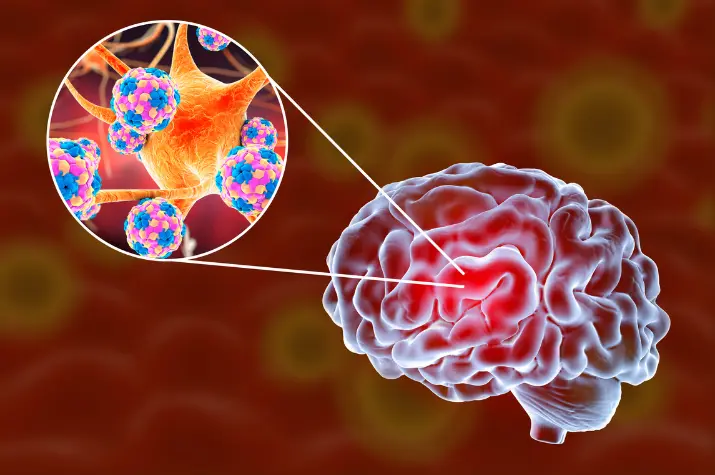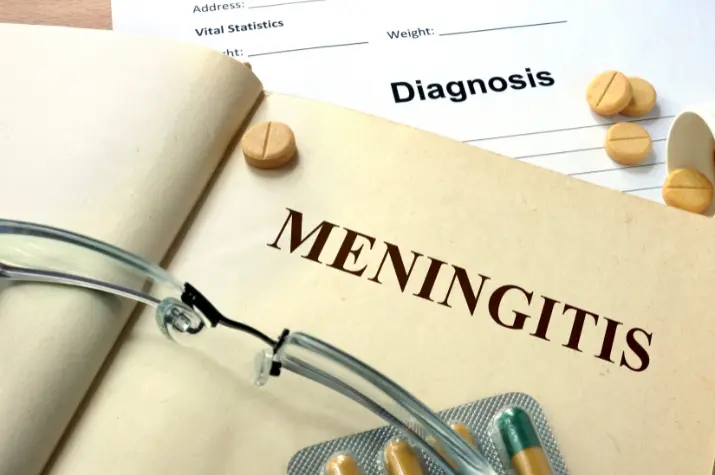
In 2023, the UK government released data stating that 1 in 8 children are unprotected against meningitis. In other parts of the world, such as Mexico and Nigeria, meningitis cases are on the rise.
Meningitis is more prominent among babies, children, teenagers, and young adults. However, anyone, at any age, can contract the infectious diseases that lead to meningitis. Vaccinations against meningitis offer some protection and are available in many countries.
What Is Meningitis?
Meningitis is a serious infection that affects the protective membranes and fluid surrounding the brain and spinal cord. It can occur due to a viral, bacterial, or fungal infection.
Viral meningitis is the most common and the most contagious form. Bacterial meningitis is less common but is far more serious.
Some of the viral and bacterial viruses that can cause meningitis include meningococcal bacteria, pneumococcal bacteria, Haemophilus influenzae type b (Hib) bacteria, enteroviruses, the mumps virus, and the herpes simplex virus.
What Are The Symptoms?
The symptoms of meningitis are not always easy to spot as they mirror the symptoms of many infections.
They include:
- a high temperature (fever)
- vomiting
- a persistent headache
- a reddish rash (and does not fade when a glass is rolled over it)
- a stiff neck
- sensitivity to bright lights
- extreme fatigue, drowsiness, or unresponsiveness
- seizures (fits)
Babies with meningitis may be extremely irritable, reluctant to feed, and have a high-pitched cry.
However, not all symptoms will appear. Meningitis in babies and children is often strongly associated with a rash, however, the rash may never appear.
If you have any concerns about the health of you or your child, do not hesitate to see a medical professional. Meningitis can become serious very quickly, so it is important to get help if you suspect it.
How Is Meningitis Diagnosed?

Meningitis is usually diagnosed in hospitals through a series of tests. If you visit a GP and they suspect meningitis, they will likely send you straight to the hospital. If meningitis is diagnosed, you will be advised to stay in the hospital to receive immediate treatment.
Testing for meningitis includes a physical examination to look for symptoms, a PCR detection test to check for a bacterial or viral infection, and a lumbar puncture.
A lumbar puncture includes taking a fluid sample from the spine to test it for bacterial or viral infection markers. A CT scan may also be performed to check for any swelling or problems with the brain.
Treatment Of Meningitis
In the UK, if bacterial meningitis is suspected, intravenous antibiotics will be commenced as soon as possible, even before it has been confirmed.
This is to prevent the serious effects of bacterial meningitis, which include permanent disabilities, hearing loss, brain damage, learning disabilities, and even death.
Intravenous fluids will also be given to anyone with suspected or confirmed bacterial meningitis to prevent dehydration. If the individual is experiencing breathing difficulties as a result of the meningitis, oxygen will be supplied through a face mask.
If a CT scan is performed and finds swelling in the brain, steroid medication will be given to reduce the swelling and minimise/prevent any damage.
If the meningitis is confirmed to be viral, the antibiotics will be stopped. Viral meningitis will usually get better on its own without causing serious problems.
Those with confirmed viral meningitis will be advised to take time off work or school, get plenty of rest, and take medication, such as paracetamol and anti-sickness tablets to treat the symptoms.
Most people make a full recovery from meningitis, especially viral meningitis. Unfortunately, complications are more prevalent with bacterial meningitis and many people do recover yet have some form of permanent problem.
This ranges from hearing loss to kidney problems. This is why it is so important to seek medical help as soon as meningitis is suspected.
Can It Be Prevented?
Meningitis is difficult to prevent as it is caused by several different infections. However, several vaccinations have been developed to fight several of the infections that cause meningitis.
In the UK, many of these vaccinations are offered and recommended as part of the NHS vaccination schedule. These vaccinations offer some protection to babies, children, teenagers, and adults.
If you are worried that you or someone you know may have meningitis, seek help from a medical professional IMMEDIATELY.
About The Author:
Stacey Smith is a freelance health writer. She is passionate about writing about women’s health, dental health, diabetes, endocrinology, and nutrition and provides in-depth features on the latest health news for medical clinics and health magazines.




